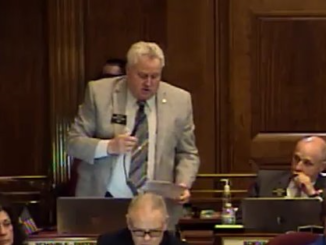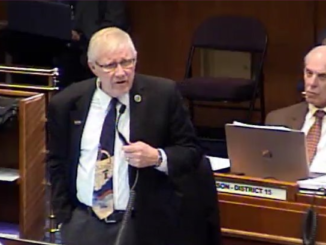
I think we’re all familiar with the term “generation gap”. As defined by Google, it’s “differences of outlook or opinion between people of different generations.” Just one example of this is in relation to technology— and more specifically, video games. I’m sure we’ve all heard it— if not said it ourselves, “Kids these days. They spend way too much time in front of those stupid video games.” And there’s undoubtedly some truth to the statement.
In The State of Online Gaming — 2019 Report, it was found that those playing video games spend an average of six hours per week doing so. What might surprise you is this— those between the ages of 18 – 25 spent the most time at seven hours per week. So, with that as a backdrop, would it surprise you to know that colleges and universities are now starting “esports” leagues? That’s right. According to a recent article in the Bismarck Tribune:
“Esports is growing nationwide, including at the collegiate level where colleges and universities offer scholarships to students to play on their varsity esports teams.”
And just in case you think North Dakota would never do such a thing, you’d be wrong:
“In North Dakota, the University of Jamestown has an esports team, and Dickinson State University and Bismarck State College will start teams this fall.”
Since these institutions have teams, it would only follow that high schools across the state would also begin establishing teams of their own. After all, what better way to recruit in-state than by developing students at this level? An example of this is in Mandan. Superintendent Mike Bitz told the Bismarck Tribune that they’ll spend about $20,000 this year to purchase computers and other equipment as a means of transforming one of their rooms into an “esports lab”. Oh, and they have to hire a coach too.
And what’s the justification for all this? It is — quite simply — inclusion. According to Grand Forks Public School Athletic Director Mark Rerick— who happens to have shopped the idea of esports leagues to districts across the state:
“These kids are going to game anyways. If you can (get kids to play video games) in your school, it’s far better for everybody. We’ll be able to put a team polo shirt on more kids. Kids that typically don’t represent our schools are now going to be able to represent our schools.”
My guess is that at some point you’ll see the idea for one of these teams being pitched at a school near you— if you haven’t seen it already. After all, the goal of those advocating for such things is to have the North Dakota High School Activities Association sanction the sport in the state. And that requires a minimum of 12 schools to accomplish such a goal. If things play out the way Rerick sees it, this is going to “grow like wildfire.”
Look, I get it that we want kids to feel good. We want them to feel like they’re part of something. But does that mean taxpayers should be on the hook to fund esports teams in the name of inclusion? I don’t think so.
And let’s not kid ourselves. There’s people looking to benefit financially from the development of high school leagues like this. Take for example 26-year old Dale Parnell. Parnell — a college dropout — is founder and CEO of PlayVS. According to a recent CNBC article, he has raised $46 million from high-profile investors in an effort “to create officially sanctioned high school esports leagues that can turn teen gamers into varsity athletes.”
In a nutshell, Parnell and his investors are banking on taxpayers buying into the idea of subsidizing a video game culture under the banner of an increasingly popular esports leagues. Sold to us as a means of including those who might otherwise be left on the sidelines.
Perhaps it’s that generation gap I spoke of when I began this article. If my view that our educational institutions should do little more than teach the fundamentals of Reading, Writing, Math, History, etc. is evidence of this, then I suppose I’m guilty as charged. If I’m bluntly honest with you, I’m not really a fan of taxpayers subsidizing sports as we know them. I’m sure as heck not excited about taking our money — regardless of the amount — and using it to have kids play video games at school too.
Call me an old codger, but we’ve reached a new level of ridiculous.
Sources:
- https://www.limelight.com/resources/white-paper/state-of-online-gaming-2018/
- https://bismarcktribune.com/news/state-and-regional/north-dakota-high-schools-to-form-esports-league/article_58a26a79-650f-5f8a-8891-4a06143e1078.html
- https://www.cnbc.com/2019/06/21/playvs-ceo-wants-to-turn-high-school-gamers-into-esports-stars.html





